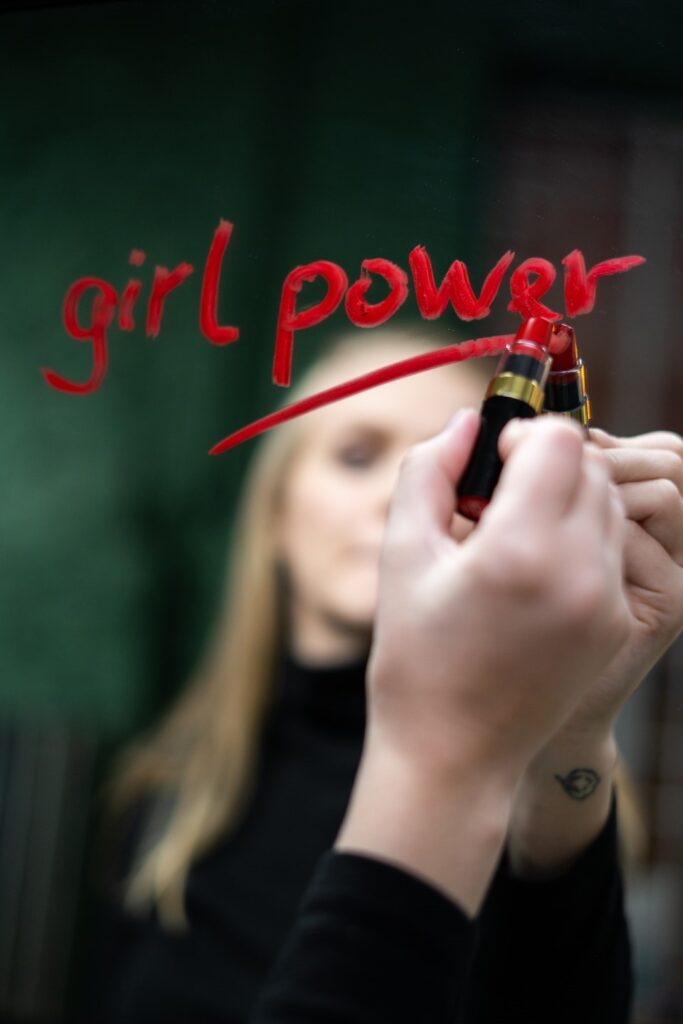International Women’s Day was started to commemorate women’s contributions to society, and it’s now celebrated annually to bring awareness to key issues, such as legal rights, economic opportunities, fair compensation, childcare access, and preventing violence against women.
This International Women’s Day, 8 March 2023, we are supporting UN Women and the United Nations in celebrating under the Embracing Equity theme, DigitALL: Innovation and technology for gender equality, and although technology has the means to empower women, not everyone has access.
Marches and parades are held in countries like Spain, Belgium, and India. In Italy and France, men give flowers to the women in their lives. In Bulgaria and Romania, children offer little gifts to their mothers and grandmothers. In Egypt, Iran, Kyrgyzstan, and Pakistan, women risk their lives to protest for basic rights.
Some people – especially those living in developed countries – think this day is a little too commercialized, unnecessary, or irrelevant. After all, women can vote, own property, divorce, pursue education, enter the workforce, hold public office, independently access financial services, and achieve any number of things.
However, there is still a persistent gender gap in digital access, keeping women in many developing countries, from unlocking technology’s full potential. There is still an underrepresentation of women in STEM education, and this creates a barrier to participation in careers such as tech, and governance.

Women now own 16.8% of Canadian SMEs, 22.4% of American small businesses, and are 50% of the entrepreneurs in Latin America and the Caribbean. The number of women-founded unicorn startups valued at more than US$1 billion has doubled in Canada since 2019 while Indian women own and control enterprises that directly employ around 27 million people.
It might seem like things are good, but there are still persistent and long-standing disparities to tackle. STEM fields are imbalanced, and women get smaller grants than their male colleagues. Women receive 50% of all science and engineering bachelor’s degrees, but only make up 25% of college-educated STEM workers. Women make up 33% of all researchers, but constitute only 12% of national science academy memberships.
Female researchers have shorter and less well-paid careers, are underrepresented in high-profile journals, and tend to be passed over for promotion.
Recruiters are 13% less likely to click on a woman’s profile versus a man. Women hold 10% of executive positions at US companies and 5% of chief executive positions at S&P 1500 companies. 60% of women experience unwanted jokes or comments about their gender.
Women still take on the lion’s share of childcare, which impacts us within the workplace and our own businesses. This is one reason why the pandemic disproportionately affected women and women-owned businesses.
New issues are arising – particularly around digital technologies. 44.2% of AI systems exhibit a gender bias and women constitute only 22% of global AI workers. 73% of female journalists experience online harassment and violence during their work.
Women make up around 75 percent of all jobs in public relations. While they are still significantly outnumbered in senior leadership positions, their overwhelming majority in the PR industry is a commendable feat. What made it possible is the pathbreaking work of women in public relations who paved the way for the rest of us, and that’s something we are working to achieve at our PR agency.
Women have made untold contributions in the digital world – from early computing to artificial intelligence – but they are still not always appreciated.
Yes, we’ve made great strides, but there’s still a long way to go. It’s important to recognize where we’ve come from, celebrate what we’ve achieved, and rededicate ourselves to pushing forwards. We must continue to encourage women to achieve digital skills, innovate in business, take on traditionally male-dominated fields like engineering and computer science, and reach out for the help and support they need. It’s our collective responsibility to maintain awareness around the core issues that impact women most while working to build a world that respects us and values our contributions.
Today, digital technology is opening doors for women, and we are working to empower female entrepreneurs through our own digital programs at Talia Davis Public Relations.
As the Founder and CEO of Women in PR North America, we have the expertise to support the women working in marketing, and PR at your business. As a busy female entrepreneur, we know you don’t have time for trial and error. You want to know exactly what to focus on with your PR and marketing strategy, to ensure your efforts are converting into sales.
That’s why we are using technology to help us empower you and your team to make the best decisions when it comes to your PR strategy. We want you to sign-up your assistant in the Public Relations Academy, so that we can train them how to market your business online, using technology to your advantage. Your assistant will be supported by a network of women that are aligned with the same online marketing goals, and personally coached by the Founder and CEO of Women in PR North America.
We support UN Women, who are calling on governments, activists, and the private sector alike to power on in their efforts to make the digital world safer, more inclusive, and more equitable. Facing a multiplicity of global crises, we have a chance to create a better future—not just for women and girls, but for all humanity and all life on Earth.
We hope you will join us online, as we work to empower women globally and embrace equity for female entrepreneurs.
Imagine a gender equal world. A world free of bias, stereotypes, and discrimination. A world that’s diverse, equitable, and inclusive. A world where difference is valued and celebrated. Together we can forge women’s equality. Collectively we can all #EmbraceEquity.







